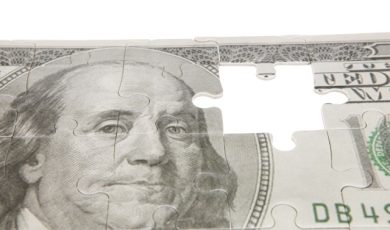Maine led the nation in action for gambling bills in the final weeks of the legislation session.
But all of those votes and revotes appear to be a lot of sound and fury, signifying nothing.
Legislation to legalize online casino, historical horse racing, electronic beano and electronic pull tabs didn’t get final passage before the legislature adjourned April 17, although the e-pull tabs bill got awfully close.
Actually, all three bills were passed by at least one chamber.
Each bill would have provided more gaming opportunities for Maine Indian tribes, which aren’t allowed to operate tribal casinos.
PlayUSA spoke with three Maine lawmakers and a regulator to make sense of the crazy legislative action that could only happen in the Pine Tree State.
“There was a lot of activity and, in the end, not much changed,” said Maine Gambling Control Board Chair Steve Silver.
What is dead may never die
In most states, legislative leaders don’t call a bill for a vote unless they know it will pass because a bill can’t come back from a no vote on the floor.
Maine isn’t most states.
“We’re from Maine, we do everything the hard way,” explained Sen. Jeff Timberlake.
A day after Maine online casino bill LD1777 advanced from committee, the House brought it for a floor vote and it failed 71-74. The Senate then also voted down the bill 14-20.
But it turns out Maine bills can be brought back to life in two ways. A member who voted no can say they want to change their vote, or the other chamber can insist the bill gets another look.
A week later, Sen. Mattie Daughtry brought the bill back from the dead by offering to change her vote. The Senate then passed LD1777 by a 19-13 vote. But the online casino bill still couldn’t pass in the House, which voted it down again 70-75.
The House passed historical horse racing/electronic beano bill LD1992 by a 75-63 vote. However, the Senate voted it down 16-18. After the House insisted that the Senate reconsidered, the Senate voted it down again 14-19.
Electronic pull tabs bill LD2213 took the most convoluted path of all, to the point that the legislators who spoke with PlayUSA were even confused about the bill’s fate.
E-pull tabs bill technically still alive
After Sen. Joe Baldacci added an amendment requiring a referendum, the Senate passed LD2213 by a 24-9 vote. Then the House overwhelmingly passed the same bill as the Senate by a 93-40 vote.
In most states, when the House passes a bill just as it passed the Senate, the next step is the governor’s desk.
However, Maine required the bill to go back to the Senate one more time for final enactment. The problem was the Senate had already adjourned.
The Maine legislature will come back at an undetermined date in the near future for a veto session to consider overturning bills vetoed by Gov. Janet Mills. Timberlake said the bill will start on the appropriations table because the referendum amendment adds a $100,000 expense.
It’s unclear if the legislature will consider passage of any bills during the veto session. And to get it off the appropriations table would require accounting for the $100,000, adding another hurdle. Timberlake said he thought the odds of getting off the appropriations table in a veto session were zero.
If the bill reached the governor, Mills could then pocket veto it without any concern about overturning her veto since the legislature would already have held its veto session.
“I know the governor is not a big fan of gambling, but it may never make it to her desk,” Timberlake said. “If I was a gambling man, talking about gambling bills, I might bet that it doesn’t make it there. But I don’t want to be the one who says that it won’t.”
If approved, the bill would permit Maine tribes to offer up to 400 e-pull tab, or “Lucky 7” machines. However, it would also allow nonprofits to potentially put 50,000 of the slot-like video gaming terminals around the state.
Why Maine online casino bill failed
Legislators brought up two reasons the Maine iCasino bill failed:
- Concerns over the addictive nature of online gaming.
- Concerns that tribally exclusive online casino would hurt tax revenues and jobs at commercial casinos.
“I think there was a hesitancy to really embrace an expansion of gambling,” Baldacci said. “It wasn’t so much about tribes as a reluctance to expand gambling because there was a lot of testimony about increased addiction when we do this.”
Timberlake voted against all the Maine gaming bills.
“I thought iGaming was a big overreach. My personal opinion is when you let someone sit on a chair in their living room and spend money they probably don’t have, there’s potential for people to rack up a lot of debt very quickly. I don’t subscribe to that so I was not in support of iGaming.”
Last November, Maine launched online sports betting with tribal exclusivity. DraftKings and Caesars sportsbooks partnered with the tribes to operate in Maine.
Sen. Brad Farrin said he didn’t think the tribes should get special treatment and that the state needed some time before expanding gaming further after online sports betting.
“I just think we’ve reached a saturation point in Maine right now and couldn’t see any expansion for gaming this session when we’re still getting our feet planted with online sports betting and everything else. I think a lot of people felt that way, and continuing to give tribes more control over the gambling piece didn’t seem quite right.”
Maine has two commercial casinos, Hollywood Bangor and Oxford Casino. Penn Entertainment owns Hollywood Bangor and would like to participate in online casino. Churchill Downs owns Oxford and opposes iGaming.
Silver said he thought online casino would have had a better chance if the commercial casinos were included. But he thinks there’s a general reluctance to expand gaming in Maine at this time.
“From what I heard, the governor was against it, I was obviously against it and the casinos were against it. It was just a flawed bill. I think we can legalize iGaming and have a more open market here. But just cutting out the casinos was not the way to do it, and changing the cascade of tax beneficiaries was not the way to do it.”
Maine online casino hopes in 2025
The Maine online casino vote was close this year, but that doesn’t necessarily indicate it will have momentum to pass in 2025.
Every legislator in both chambers is up for re-election in November. So there’s no telling what the appetite for iGaming will be in Maine next year.
If he is back, Baldacci said he might pursue a bill to make it more difficult to pass online casino and other gaming expansions in Maine.
“If I get re-elected, I might consider putting out a constitutional amendment that any expansion of gambling has to be included in a public referendum. To be honest with you, a lot of these bills weren’t well thought out because they have an enormous impact on the state of Maine with an extremely small amount of public input. I think the public needs to have a say where this goes and not be bounced around by a small handful of interest groups.”








